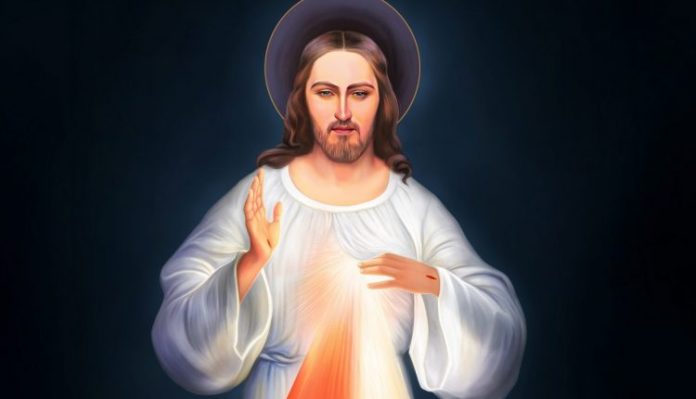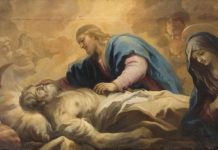‘To you I lift up my eyes, O you who are enthroned in the heavens! As the eyes of servants look to the hand of their master, as the eyes of a maid to the hand of her mistress, so our eyes look to the Lord our God, until he has mercy upon us. Have mercy upon us, O Lord, have mercy upon us’ (Ps 123:1-3).
This was the prayer of those who sought mercy from God. They did not withdraw their eyes from the Lord until the Lord heeded their prayers. In other words, they never encouraged the view that God will act the next moment of receiving their supplication. They knew that God had an appointed time to show His mercy. Their only option was to continue their prayers till that time.
It is true that since the revelations St Faustina received from Jesus, many have started to meditate on Divine Mercy seriously. It is also true that mercy is one of the major attributes of God. From creation to man’s fall, promise of sending a redeemer, sacrifice of Jesus, and to our days where ‘the ends of the ages have come’ (1 Cor 10:11) and further to the ‘consummation of all things’ the prime mover of God’s actions was nothing but His fathomless mercy.
But there are certain impediments that block the free flow of Divine Mercy into us, the major one being a hardened heart. Indifference to divine matters, resistance to the call of the Holy Spirit to repent, continuing in sin ignoring the fact that the time to repent is short, wasting the opportunities to do acts of reparation for past sins, and showing no remorse even at the time of death are all expressions of a hardened heart.
It is not a cause of justification that we were standing too close to the cross. The Scripture itself testifies that being placed near to the cross in itself does not guarantee any benefit to us. Of those to criminals who were crucified with Jesus, one has gone to Paradise with the Lord. We do not read that the other man was as fortunate as his friend. They were placed in identical situations. Both were crucified so close to the cross of Jesus where the sacrifice of Jesus the Passover Lamb for all mankind was to be accomplished. Of them one person received God’s Mercy. As for the second man the issue was not the absence of Divine Mercy but he was ‘storing up wrath for himself on the day of wrath, when God’s righteous judgment will be revealed, by his hard and impenitent heart’ (Rom 2:5). Just imagine how hardened was his heart that resisted the call to repent even at the hour of death!
It was not a parable from Jesus, but the live recording of the final hours of a man who failed to open the doors of his heart so that God’s mercy could envelop him. If it happened then, it can happen today also. If it happens in the case of a criminal, it can happen in our lives too.
Yes, God has opened the floodgates of Divine Mercy to envelop each one of us in it. But what benefit does it bring to a person who keeps himself away from its channel? ‘Listen! I am standing at the door, knocking; if you hear my voice and open the door, I will come in to you and eat with you, and you with me’ (Rev 3:20). Jesus repeats these words now also. He knocks at our door to give us the gift of Divine Mercy. And its purpose is to lead us to repentance. ‘Do you not realize that God’s kindness is meant to lead you to repentance?’ (Rom 2:4).
Let us pray that our hearts never become hard to the extent of resisting the flow of Divine Mercy into us. Let us also pray for the grace to continue our prayers until God has mercy upon us.

















